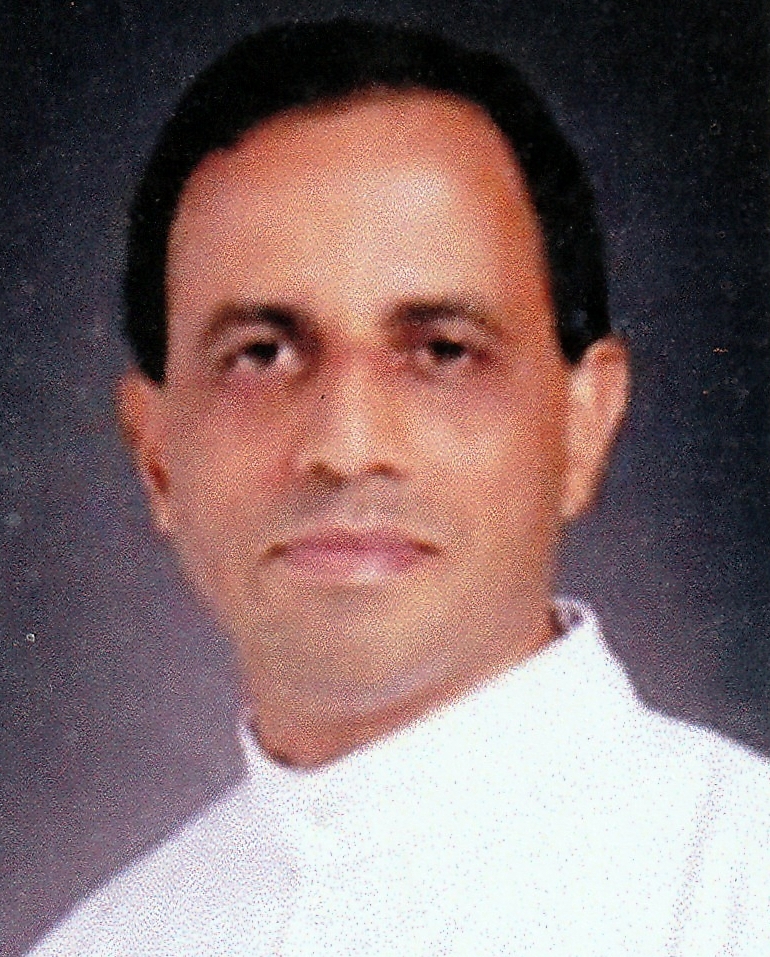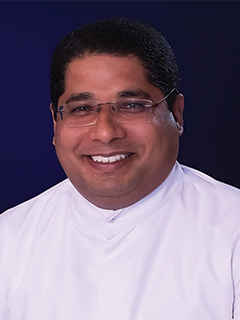THE HOLY MASS – HEARD, SAW, PARTICIPATED OR OFFERED? ..By Gaulbert Pais Back
THE HOLY MASS – HEARD,SAW, PARTICIPATED OR OFFERED?
An era before the completion of the Second Vatican Council (pre-1965), the celebration of Mass was quite a different experience to the faithful. The altar was attached to the wall and the celebrant, with his back to the congregation offered Mass in Latin to which the altar servers responded in Latin. As a result, the faithful were only able to ‘hear the mass’ in the literal sense of the term. However, one could follow and comprehend the sermon as it was delivered in the language that the commoners knew. The laity recited the Mass prayers which were translated in Konkani or English and available in the prayer book. The elderly persons held rosary in their hands.
Post the Second Vatican Council, the manner in which the Mass was celebrated changed; it became a ‘community celebration of the sacrifice’ with the altar at the centre and the priest behind it and the congregation in front. The local language replaced Latin in the celebration of mass and the congregation (together with altar servers) responded, recited the prayers and joined in the singing. From then on, the faithful were able to ‘hear the Mass’, understand it and thereby participate in it wholeheartedly. We are continuing this practice where all of us gather together around the table (altar) for the Supper of the Lamb, as one community in Christ.
Things that we do often, become habitual and routine and over time we tend to forget their significance. Has that happened to us when we participate in the Mass? As children, we stood right in front of the altar and participated; as teenagers we moved slightly back to make way for the little children. But now as grownups we have grown much fonder to occupying the last seats in the church just like we do in a movie theatre. The empty front seats no longer appeal us. And then there are some who are called as “outstanding Catholics”, not for their faith (I wish it was) but because they stand in the Church portico.
Coming to special festive masses, like Christmas or Holy Week when the place inside the church is not enough, naturally people are forced to stand outside in the compound, where again, they are only able to hear, but not see. I hope they participate.
With this background, let us look at the present situation. We are in an awkward time, when, even if the church doors are open, we are not able to go inside to celebrate Mass. Instead we are restricted to stay home, and ‘watch’ the Mass on the screens. Is it a wakeup call from God for not being alive in the church and for not participating in the Mass wholeheartedly while in the church all throughout our lives?
The question now is, how well are we using our new found resources of ‘live-streaming’, to derive maximum spiritual benefits? We are expected to be facing the altar at home focusing on the crucifix, while watching the Mass on the ‘screen’, being attentive, listening and responding, singing and praying as a family, as a community, as a parish, from the comforts of our own homes. Let us be thankful to Jesus for coming to us spiritually, if not sacramentally. This is also an opportunity to reflect on our sins of misgivings, sins of omission, sins of neglect and lethargy, sins against Christian charity, and ask God’s mercy so that we may soon return to the churches to worship Him wholeheartedly and more frequently. Thus, when we return, we may move closest to His presence on the Altar, we may open our hearts in joyful adoration, singing and praying and we may spend more time in front of the Blessed Sacrament. Let us also make a sincere effort to be in the church at least 5 minutes before the Mass commences and stay back another few minutes to pray to our Lord in silent thanksgiving. We may realise what a treasure the Lord has left for us in the Eucharist, to receive His Body and Blood, Soul and Divinity (CCC 1412). Therefore, when we receive Eucharist, may Jesus heal our souls and our bodies too. Only thing we need to do is receive him in humble adoration and deep faith.
On the Road to Emmaus
This Sunday we heard the Gospel story of the two disciples on their way to Emmaus (Luke 24:13-35). All their hopes, all their dreams were collapsed with the death of Jesus. There was more confusion and tragedy because the tomb was empty. Dejected they were ‘returning’. While on the journey, confused and sad, Jesus (whom they could not recognise) joins them, asks them the reason for their sadness and explains the Scriptures to them. Later, while at the supper, he gives thanks, breaks the bread, gives it them, and the disciples recognise him. This is exactly what happens at the Mass. Jesus joins us, reads the scriptures (the story of our salvation) and explains it to us through the celebrant, invites us to offer thanks (Eucharist means thanksgiving, by the way) to the Almighty, breaks the Bread which is His own Body and gives it to us. During this entire process, do our hearts too burn within ourselves with the love of Jesus our Saviour? If so, shouldn’t we be rushing out of the church eager to proclaim this revelation, this joy to everyone around us, through our words and deeds, just like those two disciples who rushed back to Jerusalem?
Interestingly, have you realised that, of all the post-resurrection apparitions of Jesus, His appearance to these two disciples is of the longest duration! It is also true that while offering the Holy Mass, we are in the presence of the Living Lord for the entire duration of the Mass. Indeed, what a blessing and privilege that we have, to be with Jesus, while here on earth!
Written By : Gaulbert Pais / Ward: Barebail Lower ward


